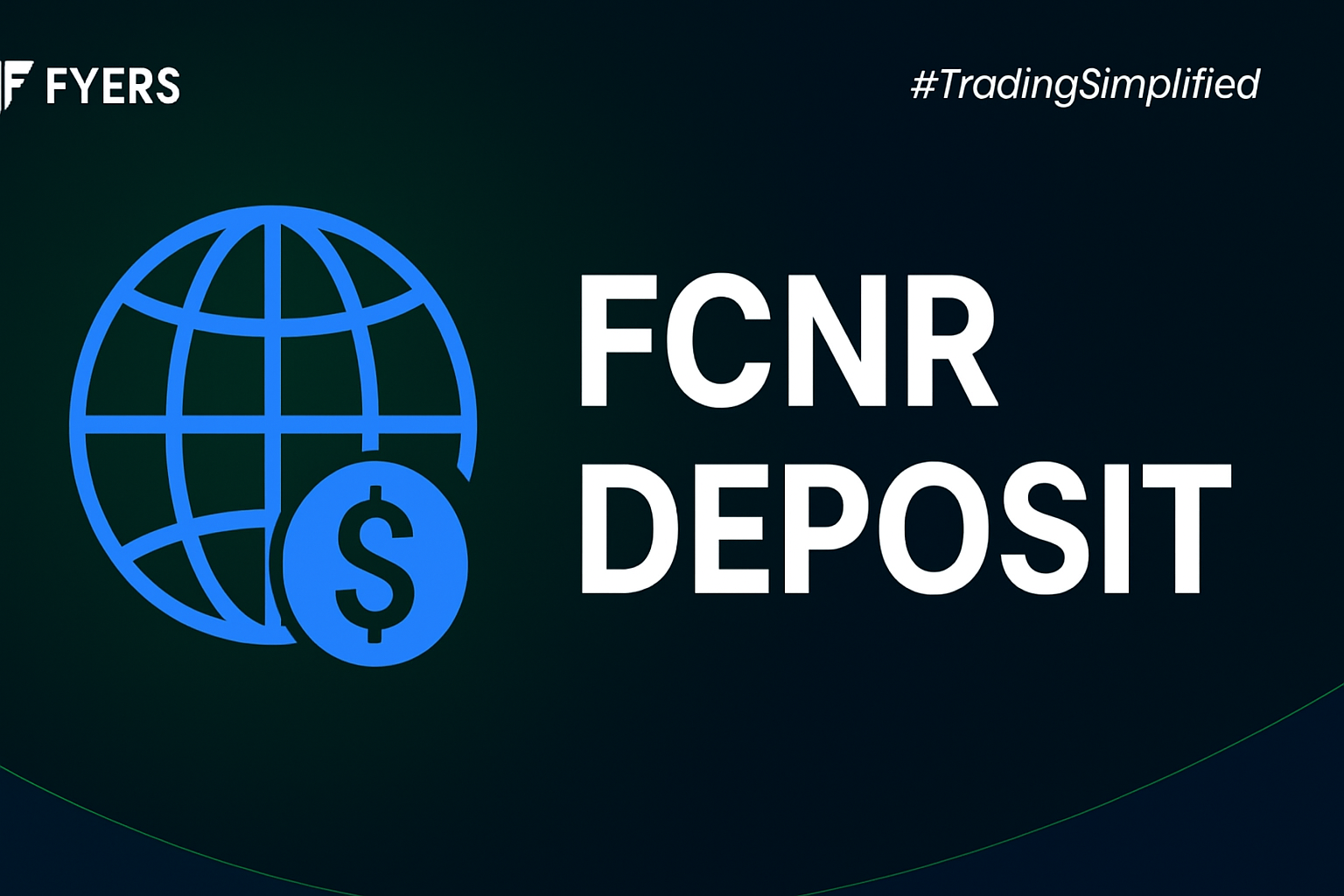

 31 Aug, 2025
31 Aug, 2025
 4 mins read
4 mins read

For Non-Resident Indians (NRIs), safeguarding savings in a stable currency is an important part of financial planning. An FCNR deposit is one of the most reliable ways to do this, as it protects funds from currency risks while offering competitive interest rates. In this guide, we explain what an FCNR account is, its benefits, and how NRIs can open one from abroad with ease.
An FCNR account (Foreign Currency Non-Resident account) is a type of fixed deposit that allows NRIs to save money in a foreign currency of their choice, such as USD, GBP, EUR, JPY, AUD, or CAD.
Unlike regular NRE or NRO deposits, where funds are maintained in Indian rupees, the foreign currency non-resident deposit shields your money from exchange rate fluctuations. For example, if the rupee depreciates against the US dollar, your FCNR deposit remains unaffected as it continues to grow in USD.
This makes it especially valuable for NRIs who earn abroad and plan to repatriate funds later.
Some defining features include:
Currency Choice – Can be maintained in major global currencies such as USD, GBP, EUR, JPY, AUD, CAD.
Tenure – Minimum of 1 year and maximum of 5 years.
Reparability – Both principal and interest are fully repatriable.
Tax Treatment – Interest earned is tax-free in India.
Joint Holding – Can be jointly held with another NRI.
This flexibility makes the FCNR fixed deposit one of the most attractive savings tools for NRIs.
Currency Protection – Shields your money from rupee depreciation.
Assured Returns – Offers fixed, predictable returns unlike market-linked products.
Global Accessibility – Can be opened and managed online from anywhere in the world.
Liquidity – Premature withdrawal is allowed (subject to bank rules), though penalties may apply.
Tax-Free Interest – In India, the interest is exempt from income tax.
Banks in India offer varying FCNR deposit rates depending on currency and tenure. Typically, US dollar deposits receive the highest demand.
For example:
USD FCNR (1–3 years) – Around 3.5% to 5% p.a.
GBP FCNR (1–3 years) – Around 2.5% to 4% p.a.
EUR FCNR (1–3 years) – Around 1.5% to 3% p.a.
Rates fluctuate regularly and differ across banks, so it is important to check the latest updates before investing.
Opening an FCNR deposit is simpler today thanks to digital banking. Here is the step-by-step process:
Select a bank in India that offers competitive FCNR rates and easy online access. Popular banks include SBI, HDFC Bank, ICICI Bank, and Axis Bank.
Decide in which foreign currency you want to hold your deposit and choose a tenure between 1 to 5 years.
You can apply online through the bank’s NRI banking portal or offline by visiting an overseas branch or correspondent bank.
Provide documents such as:
Valid passport copy
Visa or work permit
Overseas address proof
PAN card (if available)
Transfer funds from your overseas bank account to the FCNR account.
Once the deposit is created, you will receive confirmation from the bank along with details of your account, tenure, and applicable interest rate.
Example – How an FCNR Deposit Protects NRI Savings
Imagine you are an NRI living in the US. You invest USD 20,000 in a 3-year FCNR fixed deposit at 4% p.a.
After 3 years, your maturity amount = USD 22,494 (principal + interest).
Even if the Indian rupee depreciates during this period, your funds remain intact in US dollars.
This ensures stability and protection against exchange rate volatility.
While an FCNR account offers multiple benefits, it also comes with certain limitations:
Lower Returns Compared to Indian Rupee FDs – Since they are denominated in foreign currency, interest rates may be lower than domestic fixed deposits.
Premature Withdrawal Penalties – Breaking an FCNR FD before maturity may reduce returns.
Currency Choice Restrictions – Not all global currencies are available; only major ones are permitted.
FCNR Deposit – Best for NRIs wanting to save in foreign currency and avoid exchange rate risk.
NRE Deposit – Held in Indian rupees, ideal for those who want higher returns and easy repatriation.
NRO Deposit – Maintained in Indian rupees, mainly used for income earned in India.
The choice depends on whether you want currency protection (FCNR), higher interest (NRE), or managing Indian income (NRO).
An FCNR deposit is one of the most secure and tax-efficient ways for NRIs to manage their foreign earnings. By providing currency stability, assured returns, and full repatriability, it remains a preferred choice for long-term wealth preservation.
If you are an NRI looking to safeguard your savings while keeping them accessible, opening an FCNR account from abroad could be the right step.
It is a fixed deposit in foreign currency that protects NRIs from rupee fluctuations.
Any NRI or Person of Indian Origin (PIO) with eligible overseas earnings can open one.
Rates vary by bank and currency, but generally range from 2% to 5% depending on tenure.
No, the interest earned is exempt from Indian income tax.
Calculate your Net P&L after deducting all the charges like Tax, Brokerage, etc.
Find your required margin.
Calculate the average price you paid for a stock and determine your total cost.
Estimate your investment growth. Calculate potential returns on one-time investments.
Forecast your investment returns. Understand potential growth with regular contributions.